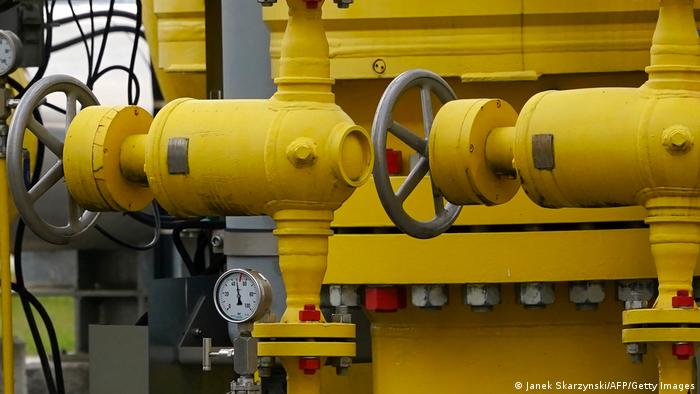
European Union member states reached an agreement in Brussels on Tuesday on an emergency proposal to reduce gas consumption as concerns grow that Russia might ultimately cut off already reduced deliveries.
The agreement was announced by the Czech Republic, which is currently heading the EU's rotating presidency.
"This was not a mission impossible!" the Czech presidency wrote on Twitter.
Officials held a press conference later on Tuesday to reveal the details of the agreement.
The extraordinary meeting comes as Russia is again to reduce gas deliveries to the bloc, which depended on Moscow for 40% of its supply before Russia invaded Ukraine in late February.
Although Russia has cited technical reasons for the reduction, many in the EU see the move as a weaponization of gas deliveries in response to Western sanctions on Moscow over the invasion.
What did the ministers say?
The energy ministers from across the bloc reached agreement on a weakened version of one put forward by the European Commission last week that called on each country to curb its consumption by 15% from August to March.
The initial plan, which could have seen all EU countries obliged to comply with the target in an emergency, met with resistance from a number of member states, leading to the current proposal with numerous national opt-outs.
"In an effort to increase EU security of energy supply, member states today reached a political agreement on a voluntary reduction of natural gas demand by 15 % this winter," the council of ministers said in a statement
"The Council regulation also foresees the possibility to trigger a 'Union alert' on security of supply, in which case the gas demand reduction would become mandatory," the statement continued.
"The purpose of the gas demand reduction is to make savings ahead of winter in order to prepare for possible disruptions of gas supplies from Russia that is continuously using energy supplies as a weapon," it went on.
Two EU officials said that Hungary was the only country to oppose the deal.
EU Energy Commissioner Kadri Simson said EU countries now have a blueprint to coordinate action should Russia cut supplies this winter.
What have EU countries said about the deal?
German Economy Minister Robert Habeck said the agreement would show Russian President Vladimir Putin that Europe remained united despite Moscow's best efforts to divide countries by creating artificial energy shortages.
"You will not split us," Habeck said.
Luxembourg's energy minister, Claude Turmes, tweeted that the agreement was the "best move to react to Putin's gas blackmail."
The Czech Republic's industry and trade minister, Jozef Sikela, said in a statement that the EU would "stand tall against any Russian attempt to divide the EU by using energy supplies as a weapon."
Ahead of the meeting, Polish Energy Minister Anna Moskwa said the plan under discussion was "neutral" for her country, because it included no binding targets.
"We cannot accept any decisions that are imposed on countries," Moskwa told reporters. "Energy security is a national prerogative."
She also said Poland had no need to save as its gas storage was full.
The Irish environment minister, Eamon Ryan, expressed doubt that a 15% reduction would be enough in view of the major cut in the Russian gas supply.
"But it's better than not having it, and I think the signal it sends is also important," he said.
What does the current plan envisage?
The new draft proposal would still require a majority of countries to implement the binding 15% reduction in a supply emergency, news agency dpa reported, citing diplomats involved in talks.
However, countries such as Ireland and Malta that are not connected to EU gas networks would be exempted.
There would be weaker targets for countries that export gas or whose gas storage is almost full. Certain industries such as the chemicals and steel branches could also receive exemptions.
Resistance to the plan has been led by Spain and Portugal, which have little connection to the EU's gas pipeline network. Greece has also said the plan would place too much of a burden on its economy and citizens.
Germany, on the other hand, is among the countries that relies heavily on Russian gas and has strongly supported the emergency plan.